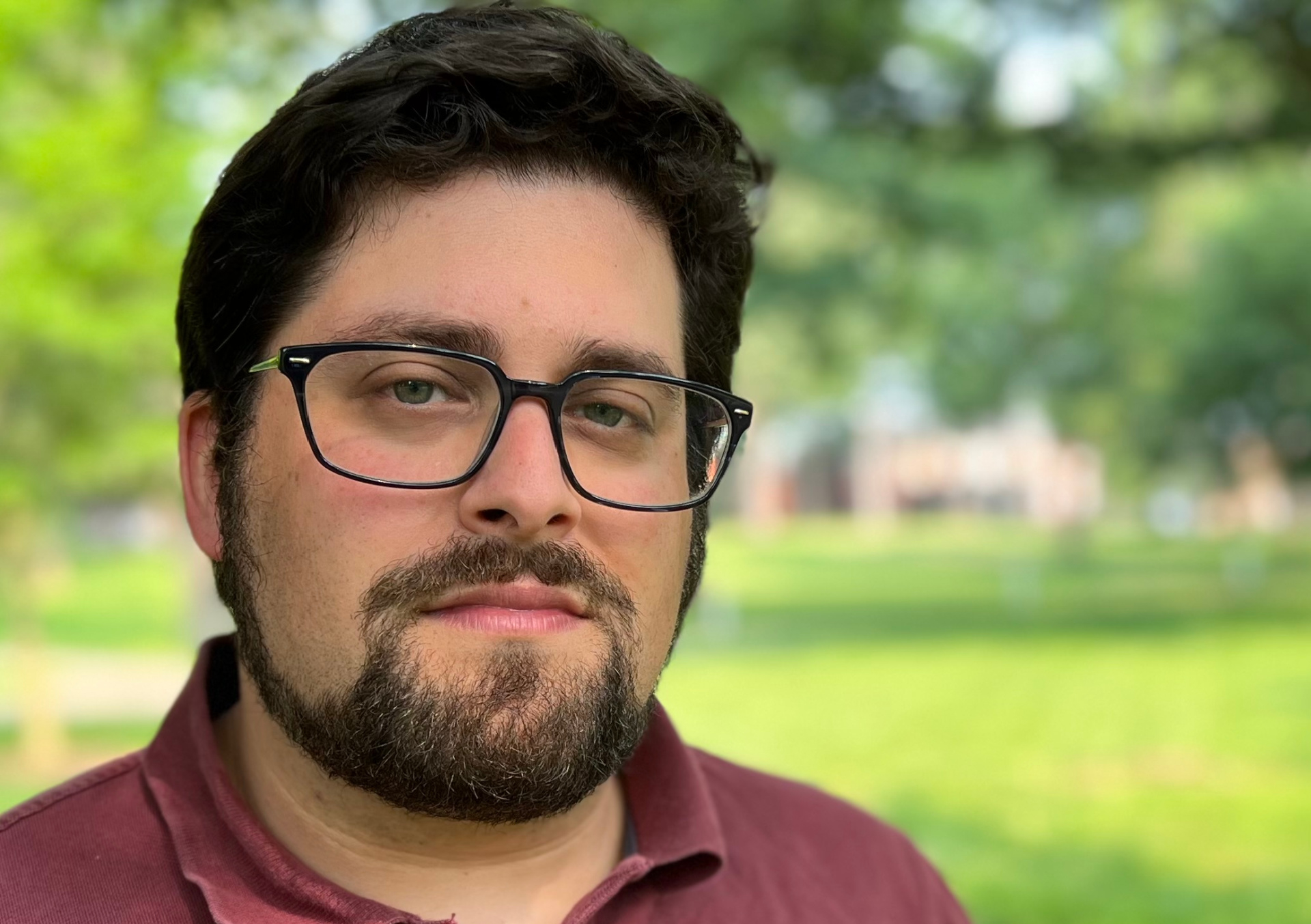
Philosophy professor Marius Pascale doesn’t teach students right and wrong, but rather how to see new perspectives.
“There’s a strong desire for change from many (Guilford) students, particularly change towards character, towards morality, towards trying to affect positive outcomes."
CEOs playing fast and loose with the rules. Family members sharing their Netflix password. Politicians getting caught with their hands where they shouldn’t be. Ethical questions these days seem to come fast and furious from large corporations to small-town churches.
An education in ethics can strike some people as an abstract or indulgent endeavor. But Marius Pascale, Visiting Assistant Professor of Philosophy, points to a handful of students in Guilford’s Class of 2027 as a potent rebuttal.
While poring over the 50-plus fall applicants for the College’s second class of Ethical Leadership Scholarship Fellows, funded by Dan and Beth Mosca with a generous gift commitment in 2022, Marius was inspired by the passion found in many of the students’ essays and videos.
“There’s a strong desire for change from many of the students, particularly change towards character, towards morality, towards trying to affect positive outcomes,” says Marius, who came to Guilford last summer after teaching at Rider University in New Jersey. “So many of the applicants — many (Guilford) students, actually — have a desire to define good, understand how they can be good themselves and, just as important, be good for others.”
Marius says students’ curiosity to look at today’s issues with an even more critical eye than before might be because of what they’re seeing — or not seeing — in the world today. “The desire by so many people to ignore ethics, professional ethics, codes of ethics, there’s been a strong reaction to that. I sense a strong push to make things better for themselves and for other communities.”
In a sense, Marius sees himself in Guilford’s students. He’s always had the innate curiosity to be drawn to complex, abstract, multidimensional subjects, ask questions and explore all the sides to an issue.
His mother likes to tell the story of Marius once asking her on the trip to preschool what would happen if he woke up the next day and the past three years of his early life had all been a dream.
He also remembers working in a grocery store’s produce section in upstate New York to help put himself through college when one of those ethical issues arose.
Every week Marius and other employees moved around the store, gathering hundreds of pounds of food — produce, packaged meats, cheese, baked goods — before tossing everything into the dumpsters behind the store.
From a business perspective, the logic seemed simple: the company was committed to selling fresh food to its customers and the move made financial sense, given that the healthy tax write off kept the chain profitable, which, in turn, kept employees like Marius on the payroll.
Marius had a different take. What if the food went to area charities to disperse to families in need?
“It’s a great ethical question to ask of a class,” says Marius. “Which need is more important, or how can we effectively balance them?”
For the record, the grocery store decided to report the pounds of food disposed of to the corporate offices, but quietly arrange for local charities to pick it up.
Marius readily admits that decision poses yet another series of ethical questions, and that’s the point. Ethics is not always straightforward. There are numerous factors to take into account. There’s often no perfect answer that leaves you feeling good after leaving one of his ethics classes. Abortions, gun bans, the death penalty, the Netflix password you borrow from your kids at college.
What’s important, he says, is the process. There is no universal formula for thinking through a concrete ethical dilemma. One of the many important parts of the process, Marius says, is intersectionality — the consideration of marginalized groups, cultures and perspectives when making decisions.
Marius teaches both normative and applied ethics classes at the College — ethics, medical ethics, ethics of data, environmental ethics, philosophy of law, philosophy of horror and death. He says Guilford students are open to considering other views in large part because most of the College’s faculty long ago incorporated the concept into their courses.
“In Guilford students, I think we are seeing a much more increased propensity and capacity to see the complexity of ethical issues,” he says. “Students are growing up in environments where they're exposed to much more. Not just more information, but also more perspectives, and more experiences, both their own and others. I think they've become much more willing to recognize that there are different perspectives to a lot of things.”
He loves when students start to see those differing perspectives because that’s when the passion starts to take hold. “They take what they know and what others know and … use it to both understand their own position and understand the positions of others and better develop a deeper, maybe even newer perspective,” says Marius. “That’s when students learn and grow. Maybe even see the world in a whole different perspective — in their work and their lives.”

